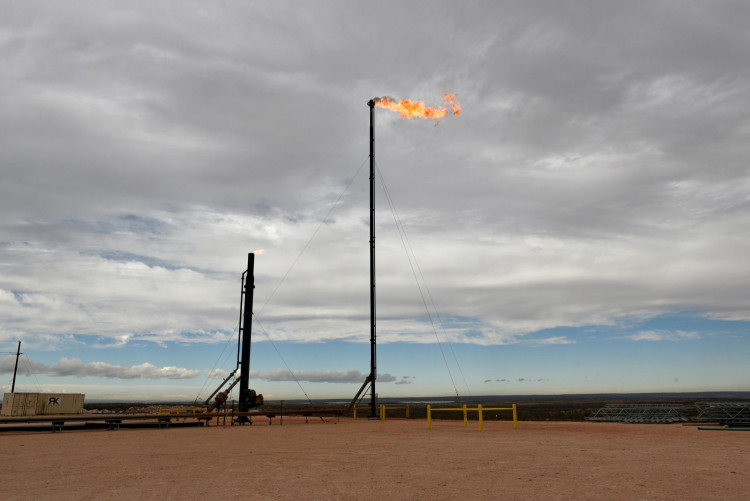Chesapeake Energy Corp's stock jumped slightly late Thursday after the top executives of the oil and gas company acquired a total of 125,000 shares under $1 apiece on the fall.
A day after tumbling to close at the lowest level since March 1999, the company's stocks edged up during afternoon trade.
The firm announced in a Form 4 Report with the Securities and Exchange Commission late Wednesday that Chief Executive Doug Lawler spent $45,740 to acquire 50,000 Chesapeake stocks at an average price of 91.48 cents.
The report said stocks were bought at prices ranging from 91,475 cents to 91,48 cents in various transactions. The share ranged from 79.00 cents to $1.30 in an intraday range until settling at 90.69 cents.
The acquisition leaves Lawler, who has been the top executive since June 2013, with a stake in the company of 5,133,298, and nearly 0.4 percent of the outstanding shares.
Chesapeake said in a separate Form 4 that Brad Martin, who since October 2015 has been a non-executive chairman, spent $213,000 to purchase 250,000 securities at an average price of 85.2 cents.
The securities are bought at prices ranging from 85.01 cents to 85.49 cents in various transactions. The transactions leave Martin with a share of 1,222,881. He also indirectly holds another 75,000 shares via a trust.
Lawler's and Martin's acquisitions came as the shares plummeted 29 percent on Wednesday to close down under $1 for the first time in 20 years, after the company issued a so-called "going worry" notice in its quarterly disclosure with the SEC and posted third-quarter results that exceeded estimates for a third straight quarter.
The stock rose as much as 7.7 percent on Thursday at an intraday peak of 97.59 cents, but fell as much as 1.9 percent at the intraday low of 89.00 cents before returning back to positive territory.
To date, the market has fallen by 56 percent, while the exchange-traded fund of the SPDR Power Select Sector has added 7 percent and the benchmark of S&P 500 has increased by 24 percent.
A wider than expected adjusted loss was reported for the company's third quarter, as the company was hurt by a fall in production and falling prices of natural gas.
The company has a $1.48 billion market cap and outstanding 1.63 billion shares, of which the float is 1.62 billion securities. Analysts find this inventory to be successful as it changed the trading volume to 90,533,035 shares compared to its 63,07 million daily share volume.
The firm is slashing the Capex Plan by 31 percent sometime next year, which ensures that oil production will be low. It is anticipated that production and G&A expenses will be trimmed down by 11 percent.






